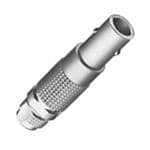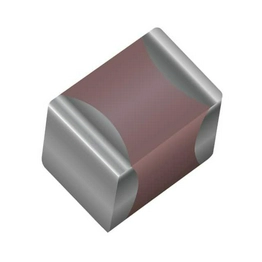A Comprehensive Guide to RF Connectors and Their Types
RF connectors, or Radio Frequency connectors, are essential components in any system that transmits or receives radio frequency signals. These connectors are primarily used to connect coaxial cables to devices like antennas, test equipment, radios, and other communication devices. Given their critical role, it's essential to choose the right rf connector type for your specific application, as the performance of your system largely depends on this choice.
This comprehensive guide will explore the different types of RF connectors, their applications, and provide insight into the leading RF connector brands like AMPHENOL and LEMO. We will also introduce unikeyic Electronics, a recommended distributor for purchasing high-quality RF connectors from top brands. Finally, we will address some frequently asked questions (FAQs) about RF connectors, including important considerations such as rf connector types and their applications.
What is an RF Connector?
An RF connector is a type of electrical connector designed to work at radio frequencies in the multi-megahertz range. RF connectors are often used to transmit high-frequency signals with minimal interference or loss. These connectors are typically mounted on coaxial cables, providing a stable and secure connection that ensures efficient transmission of signals across the cable.
Key characteristics of RF connectorsLow signal loss: RF connectors are engineered to minimize signal degradation, ensuring high-quality signal transmission.Shielding: Most RF connectors are designed to prevent interference from external electromagnetic sources, offering strong signal integrity.
Durability: These connectors are built to withstand frequent use and challenging environments without losing performance.
Common Types of RF Connectors
RF connectors come in a variety of styles, each designed for specific applications based on the requirements of the system, such as operating frequency, power handling, mechanical strength, and durability. Below are some of the most commonly used RF connector types:
1. SMA Series ConnectorsThe SMA (SubMiniature A) connector is one of the most widely used RF connectors. Designed for high-frequency applications, typically in the microwave range (up to 18 GHz), SMA connectors are ideal for applications that require reliable and precise signal transmission.Features of SMA connectors:Threaded coupling: SMA connectors use a threaded interface to ensure a secure connection and minimize signal loss.Applications: They are commonly used in wireless communication systems, test instruments, and microwave systems.Power and frequency: SMA connectors can handle relatively high power and work at high frequencies, making them a go-to choice in many RF applications.
2. SMB Series ConnectorsSMB (SubMiniature B) connectors are smaller and more compact than SMA connectors. They use a snap-on coupling mechanism, which makes them easy to install and remove. Despite their small size, SMB connectors provide excellent performance up to around 4 GHz.Features of SMB connectors:Quick installation: The snap-on design allows for easy and quick coupling, saving time during assembly.Applications: SMB connectors are widely used in communication devices, GPS systems, and radio equipment.Signal performance: SMB connectors offer low insertion loss and good signal integrity, even at relatively high frequencies.
3. TNC Series ConnectorsThe TNC (Threaded Neill–Concelman) connector is a threaded version of the BNC connector, offering higher frequency performance and better resistance to environmental factors such as vibration. It operates effectively up to 11 GHz and is particularly suited for use in harsh environments.Features of TNC connectors:Threaded design: This design ensures a more secure and stable connection, making it suitable for environments with high vibration.Applications: TNC connectors are commonly used in communications, and antenna systems.Durability: The robust construction of TNC connectors makes them ideal for use in outdoor and industrial environments.
4. N-Type Series ConnectorsThe N-type connector is one of the oldest and most versatile RF connectors, developed in the 1940s. It offers excellent performance across a wide range of frequencies, typically up to 18 GHz, and can handle high power levels.Features of N-type connectors:Durability: N-type connectors are rugged and can withstand harsh environmental conditions, including extreme temperatures and moisture.Applications: N-type connectors are commonly found in wireless communication systems, broadcast systems, and radar applications.High power handling: These connectors are capable of handling high power, making them suitable for high-power RF applications.
5. BNC Series ConnectorsThe BNC (Bayonet Neill–Concelman) connector is a commonly used RF connector, known for its easy-to-use bayonet coupling mechanism. BNC connectors are used for low-frequency applications, typically up to 4 GHz, and are popular in video and data signal transmission.Features of BNC connectors:Quick connect/disconnect: The bayonet mechanism allows for quick and secure connections, making them ideal for testing environments.Applications: BNC connectors are widely used in radio, television broadcast equipment, and test instruments.
Cost-effective: BNC connectors are relatively inexpensive and offer good performance for applications that do not require high-frequency capabilities.
Major Brands of RF Connectors
When selecting an RF connector for your project, it is crucial to choose a brand that offers high quality and reliability. Two leading brands in the RF connector market are Amphenol and LEMO.1. AmphenolAmphenol is a globally recognized manufacturer of connectors and interconnect systems. Their RF connectors are known for their durability, performance, and wide range of applications. Amphenol offers a broad selection of RF connectors, including SMA, SMB, TNC, and N-type connectors, suitable for both low-frequency and high-frequency applications.Why choose Amphenol:Extensive range of connector types for various industries.Superior engineering and quality control standards.Reliable performance in demanding applications like automotive, and telecommunication.
2. LEMOLEMO is another prominent name in the RF connector market, particularly known for its precision engineering and high-quality products. LEMO connectors are used in demanding applications where reliability and performance are critical, such as medical equipment, broadcast, and high-frequency data transmission systems.Why choose LEMO:Known for precision and high-performance connectors.Specialized designs for high-frequency and harsh-environment applications.
Trusted by industries requiring top-tier RF connector solutions.
Recommended Distributor: Unikeyic Electronics
When looking for reliable sources to purchase RF connectors, it is essential to find a distributor that offers a wide range of products from trusted brands. Unikeyic Electronics is a highly recommended distributor, offering a comprehensive selection of RF connectors from leading manufacturers such as Amphenol and LEMO.Why choose Unikeyic Electronics:A broad selection of RF connector types from top brands.Competitive pricing and excellent customer service.Availability of both common and specialized RF connectors for various applications.
Whether you're working on a commercial, industrial project, Unikeyic Electronics provides the quality components you need to ensure your RF systems operate at peak performance.
Advantages of RF Connectors
RF connectors provide numerous benefits in high-frequency signal transmission systems. Here are some of the key advantages:1. High Performance at High FrequenciesRF connectors are designed to work effectively at high frequencies, ensuring minimal signal loss and providing reliable signal transmission even in demanding environments.
2. Durability and LongevityMost RF connectors are built to last, even in harsh environments. They can withstand mechanical stress, high temperatures, and corrosive conditions, making them ideal for outdoor and industrial applications.
3. Versatile ApplicationsWith a wide range of RF connector types available, they can be used in virtually any field.
4. Ease of Installation
Many RF connectors, such as BNC and SMB connectors, are designed for quick and easy installation, making them convenient for field work and testing environments.
RF Connector FAQ
Q1: What is an RF connector used for?An RF connector is used to connect coaxial cables to devices that transmit or receive radio frequency signals, such as antennas, radios, and test equipment.
Q2: What are the most common types of RF connectors?Some of the most common RF connector types include SMA, SMB, TNC, N-type, and BNC connectors. Each type is designed for specific applications and offers different performance characteristics.
Q3: What factors should I consider when selecting an RF connector?When choosing an RF connector, consider factors such as the operating frequency, power handling capacity, environmental conditions, and the physical size of the connector.
Q4: What brands are recommended for high-quality RF connectors?Leading brands such as Amphenol and LEMO are highly recommended for their reliable performance and wide range of RF connector types. Unikeyic Electronics is a trusted distributor of these brands.
Q5: Can RF connectors be used in high-vibration environments?Yes, RF connectors like TNC and N-type connectors are designed to withstand high vibration and are suitable for use in industrial applications where vibration is a concern.
In conclusion, choosing the right RF connector is critical for the optimal performance of your RF systems. Whether you need high-frequency, high-power connectors like SMA, TNC, or N-type connectors, or smaller, more compact options like SMB connectors, brands like Amphenol and LEMO offer reliable solutions. For all your RF connector needs, you can rely on Unikeyic Electronics, your trusted distributor of top-brand RF connectors.






















